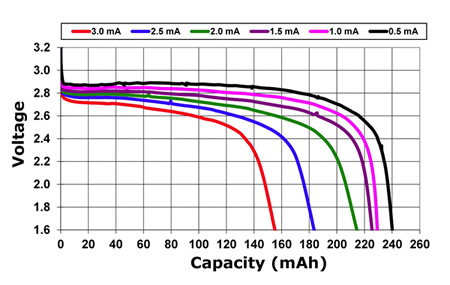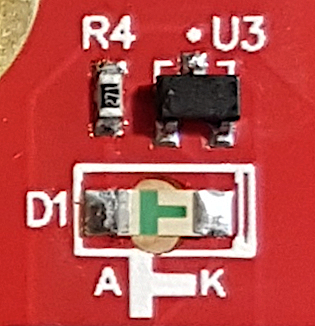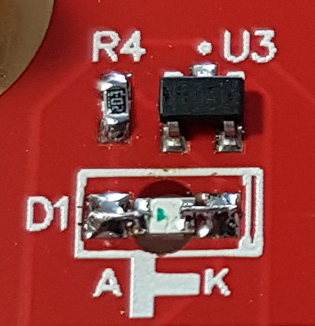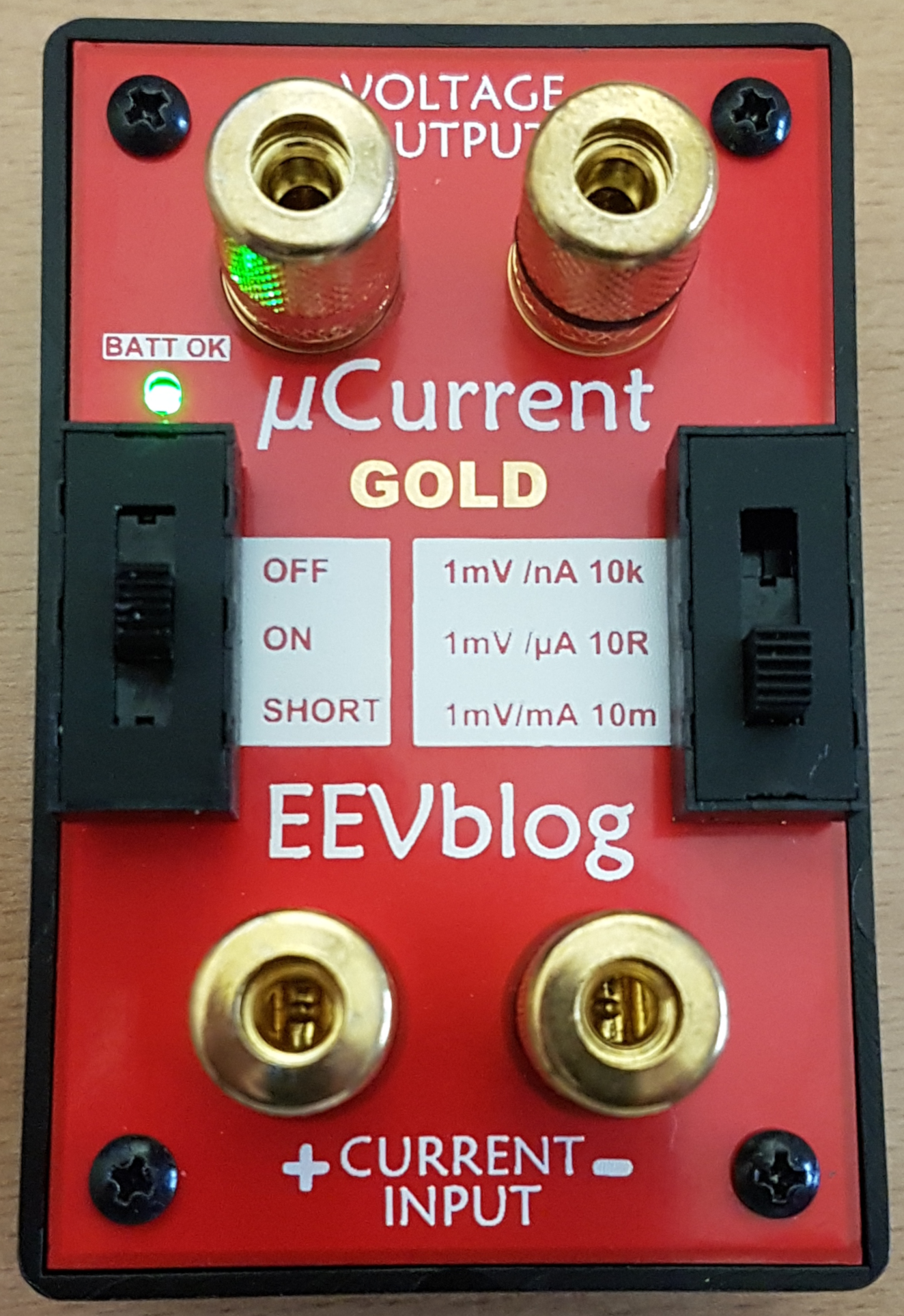How to drastically improve battery life of an EEVBlog uCurrent Gold
Most of the uCurrent’s battery power is consumed by its LED (‘BATT OK’). So battery life is mainly determined by the LED’s current (not well-designed for a device focused on low-current and itself powered by a tiny battery).
The LED is on when the device is powered on and battery voltage is 2.65V or higher. The warm-yellow LED has a 270 Ohm series resistor and draws around 3 mA current.
Replacing the LED with a bright version and a much higher valued series resistor will drastically decrease current consumption and therefore improve the battery life.
After replacing the LED on my uCurrent Gold (rev5) with a bright green one and replacing the 270 Ohm series resistor with 20k Ohm, the LED draws only 42 uA current (@3.0V) which is only 1.4% of (71 times smaller than) the original 3 mA!
According to the uCurrent Gold’s specifications battery life should be at least 50 hours when using a standard CR2032 cell (220 mAh) with 2.65V cutoff voltage.
Below discharge curve shows that the maximum capacity that can be consumed with 3 mA discharge current and 2.65V cutoff voltage is around 80 mAh.

Image source: http://www.low-powerdesign.com/121312-article-extending-battery-life.htm
To light the LED with 3 mA for 50 hours requires 150 mAh capacity which is much more than the 80 mAh that the curve shows. Even if the values in the curve are taken with a grain of salt, the specified 50 hours battery life is probably still too optimistic. And that is only based on the LED current, not taking into account the current consumption of the uCurrent itself, which - based on the uCurrent Gold’s specifications - will probably be very small when compared to the current consumed by the LED.
Therefore minimizing the LED’s current will have a major positive effect on the battery live time.
Notes: It is difficult to find CR2032 discharge curves for currents in the mA range, many available CR2032 discharge curves only cover discharge currents of 100 nA and lower.
Many manufacturers base their specified CR2032 capacity on a 2V cutoff voltage, so with the uCurrent’s 2.65V cutoff voltage an important part of the specified capacity will not be used. Also the constant discharge (LED) current is relatively high for a CR2032 battery which further reduces the battery’s usable capacity.
 . .
. . 
On the left: original yellow LED with 270 Ohm resistor and on the right: LED replaced with bright green LED with 20k Ohm resistor (smaller LED because I had no larger).
Result

With only 42 uA the LED is still clearly visible